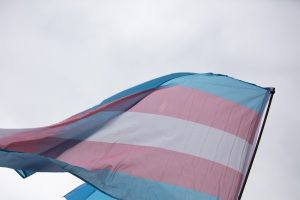In Hong Kong, transgender people are far from accepted.
Members of the community spoke out against discrimination after a survey published ahead of the International Day Against Homophobia, Transphobia and Biphobia revealed the massive scope of society’s marginalization of transgender people.
More than three-quarters of transgender people in Hong Kong have contemplated suicide and over half reported facing discrimination in areas of employment, education, and more, according to research published on May 12 by the Chinese University of Hong Kong. In addition, about 62 percent of respondents reported experiencing various forms of victimization and over three-quarters have faced rejection in their social lives. The CUHK undertaking is the largest such study in recent years.
“The root of the suffering of transgender people is societal and public misunderstanding. This research provides empirical evidence for society to understand the plight of transgender people,” said Joanne Leung, founder of the Transgender Resource Centre, in a release. “Misunderstanding generates fear. And both society and transgender people suffer as a result.”
In a city where LGBTQ+ issues remain largely taboo, transgender people are among the most vulnerable and misunderstood in the community. Under Hong Kong law, transgender people must undergo sex reassignment surgery before they’re allowed to legally change their gender status. Yet only 5.6 percent of respondents have changed their status, while a substantial portion had not undergone surgery and were unsure whether they wanted to.
Suen Yiu-tung, assistant professor of gender studies at CUHK and the survey’s principal investigator, says the government should consider transgender people’s concerns in the debate over legal gender recognition. Local activists have long called for the implementation of a self-declaration gender recognition scheme and similar legal changes that have been passed in Argentina and other countries.
“An overwhelming majority of transgender people in Hong Kong are excluded from being eligible for a change of (their legal sex), which fundamentally affects their civil, political, economic, social and cultural rights,” Suen said in a release. “Despite research showing that public attitudes towards transgender people are turning more positive, a lot remains to be done to enhance public understanding.”
Transgender people in Hong Kong, as elsewhere in the world, face many challenges when navigating everyday life and accessing public spaces. Some have been subjected to verbal abuse, physical violence, and even sexual assault when attempting to use bathrooms that match their self-identified gender, or accessing pubic bathrooms generally. Over 40 percent also reported experiencing negative treatment when going though immigration, the survey shows.
Advocates say the city must provide better mental health resources, access to gender-neutral toilets and training on gender issues for service providers in order to support the population. More also needs to be done to raise awareness on transgender issues and combat stigma against the population, they added.
Liam Mak, a 19-year-old transgender activist and founder of the youth community support group Quarks, told The Diplomat that improving public health access to young transgender people in particular is crucial. Being able to transition earlier would prevent more discrimination and parents should support their children during this process, he added.
“I hope people know that [being transgender] is not a choice,” Mak said. “It isn’t something that just happens. We all have this feeling from a young age. Having the support of loved ones is the most important.”

































